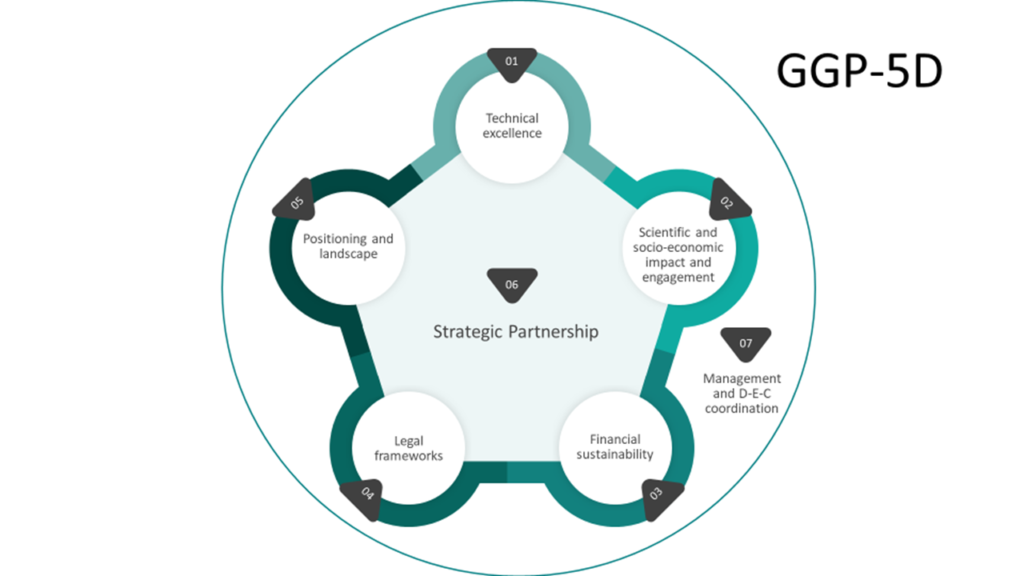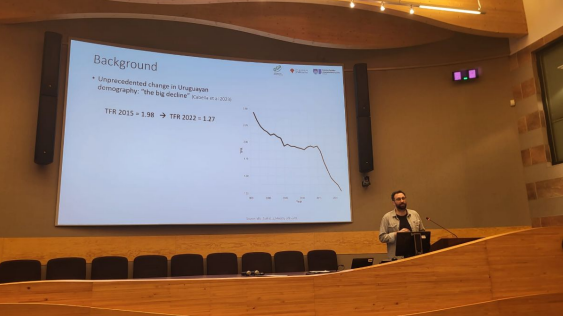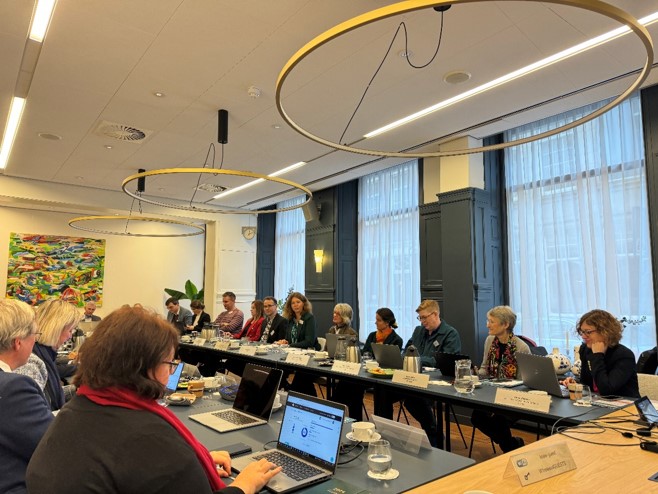The GGP-5D project represents a transformative phase for the Generations and Gender Programme (GGP) and is named after five key readiness dimensions (outlined below). GGP-5D aims to enhance the long-term sustainability and the overall ‘investment-readiness’ of the GGP on its way to becoming a permanent research infrastructure (RI) with its own legal status of the European Research Infrastructure Consortium (ERIC). To do so, the GGP-5D project pursues five main objectives lead by our scientific partners, with each of them taping into five specific dimensions of readiness. These dimensions contribute to the evolution and enhancement of the GGP’s role as a pivotal RI focused on demographic changes and societal challenges. GGP-5D was launched in October 2022 and will be finalized in September 2026.

GGP-5D Objectives
The GGP central coordination team, hosted at NIDI, leads the GGP-5D project alongside with 15 partners, primarily from the GGP Consortium Board. The consortium works closely with the Board of Governmental Representatives (BGR), whose members assess GGP’s investment readiness and determine their country’s participation in the future GGP-ERIC. BGR meetings evaluate sustainability and progress based on the project’s five key objectives of GGP-5D. NIDI oversees project management and dissemination, ensuring clear communication of milestones. Each objective plays a vital role in maintaining GGP’s position as a leading RI addressing demographic and societal challenges.

The technical architecture of the GGP consists of a series of data life-cycle operations which involve the collection, processing, documentation, dissemination and archiving of data. To ensure the continuity of GGP’s technical excellence, a major technical upgrade is planned during GGP-5D in response to evolving challenges.

The GGP has over 5,800 scientific users and GGS data are regularly used to provide empirical evidence in policy debates on topics such as gender equality and work-life balance. To strengthen GGP’s scientific and socio-economic impact and further evolve as a community-driven RI, enhanced focus on tracking and demonstrating its contributions is necessary. This will make sure that the GGP remains sensitive and responsive to current and emerging scientific and societal challenges.

7th GGP User Conference, Warsaw, Poland, September 2023

The GGP is funded through contributions from Consortium Board members, its host institution NIDI, GGS service fees, and project grants. Ensuring long-term financial sustainability of the GGP is critical for its continued success.

Establishing the legal groundwork for the GGP to become an ERIC is a key priority of GGP-5D. This will provide GGP with its own legal entity while remaining hosted at NIDI.

The GGP occupies a specific position in the landscape of social sciences research infrastructures (SS RIs), focusing on population and family dynamics. It complements other SS RIs such as Guide (children), SHARE-ERIC (older adults) and ESS-ERIC (values and attitudes). Strengthening GGP’s strategic position and fostering collaboration with other SS RIs is a key priority.

GGS Workshop in Western Balkans
The five readiness dimensions outlined above will all feed into the overall sustainability and readiness of the GGP. Two additional objectives are dedicated to strategic partnership, management and Dissemination, Exploitation and Communication (DEC) coordination.
This objective centers on the Board of Governmental Representatives (BGR), composed of prospective GGP-ERIC member representatives. Chaired by the Netherlands, the BGR meets biannually to assess GGP-5D’s readiness, reviewing key documents like the GGP Business Case and ERIC statutes. By the project’s end, the BGR will determine GGP’s transition to an ERIC, formalizing commitments through the approval of statutes and a signed Memorandum of Understanding (MoU). By engaging all GGP-5D partners, strong ties are maintained with governmental representatives and national outreach is supported.

Board of Governmental Representatives Meeting at NIDI
This objective is responsible for the GGP-5D project management and ensures effective dissemination, exploitation, and communication (DEC) of the project outcomes.
Last updated: 15-04-2025

Fill the form below with your contact information to receive our monthly GGP at a glance newsletter.
